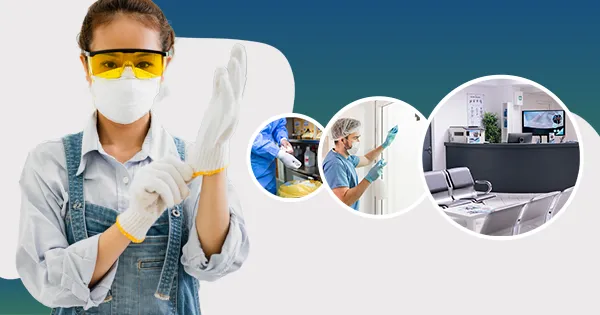Introduction
Healthcare facilities are meant to be places of healing, but without stringent hygiene standards, they can become breeding grounds for dangerous pathogens. From hospitals to outpatient clinics, the presence of harmful microorganisms poses a constant threat to both patients and healthcare workers. These hidden dangers can lead to serious infections and even fatalities if not addressed through proper cleaning protocols.
The Importance of Hygienic Cleaning in Healthcare
Hygienic cleaning plays a pivotal role in infection prevention and control. Surfaces in hospitals and clinics — such as bed rails, medical equipment, door handles, and floors — can harbor harmful bacteria like MRSA, E. coli, and C. difficile. Without rigorous cleaning, these pathogens can spread rapidly, especially in environments where patients may already have compromised immune systems.
Consequences of Poor Cleaning Practices
Neglecting proper hygiene can result in hospital-acquired infections (HAIs), which can have devastating effects on patient recovery times and overall healthcare costs. In some severe cases, these infections can lead to death. For healthcare providers, the implications extend beyond health risks to include reputational damage and potential legal repercussions.
Targeting Hidden Risks with Specialised Cleaning
Standard cleaning is not sufficient in high-risk healthcare environments. This is where deep cleaning becomes essential. Deep cleaning goes beyond surface-level dirt, targeting hard-to-reach areas and ensuring that biofilms and embedded pathogens are eliminated. Regular deep cleaning significantly reduces the microbial load in critical areas like operating rooms and ICUs.
The Role of Disinfection Services
While cleaning removes visible dirt, disinfection is vital to kill invisible pathogens. Disinfection cleaning services use hospital-grade disinfectants and advanced fogging technologies to decontaminate spaces thoroughly. This step is especially crucial in areas exposed to infectious diseases, bodily fluids, or patients under isolation.
Conclusion
Maintaining strict hygiene in healthcare facilities is not optional — it is a life-saving necessity. Investing in professional deep cleaning and disinfection services helps healthcare institutions stay compliant, protect lives, and foster a safe healing environment. With proactive hygienic cleaning measures in place, healthcare providers can minimise infection risks and offer patients the safe care they deserve.


